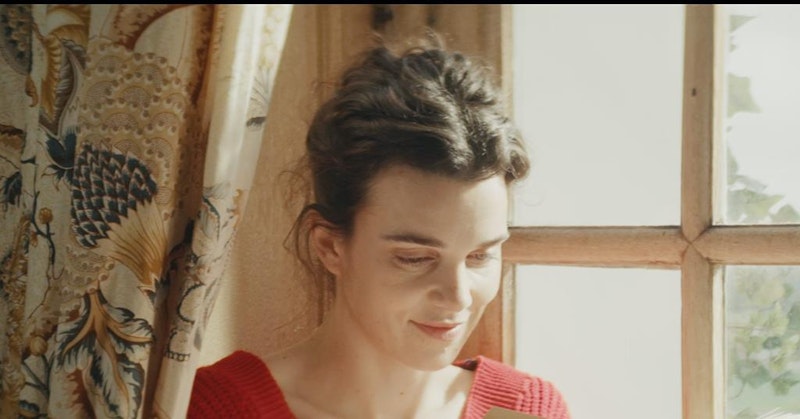The new romantic comedy Jane Austen Wrecked My Life is about a female writer who’s influenced by Jane Austen and visits the former estate of Jane Austen, and the film is structured very similar to a Jane Austen plot.
The film reminded me of 1988’s Crossing Delancey, with its heroine who works in a bookstore, has literary aspirations, and ends up in a love triangle with one suitor who’s confident but arrogant, and another who’s awkward but charming. Except, she’s French, not Jewish, and lives with a nephew rather than a bubbe.
Austen adaptations have been ubiquitous for the last 30 years. We’ve had straightforward costume dramas (multiple versions of Pride and Prejudice, Persuasion, Sense and Sensibility, and Emma), modern re-imaginings (Clueless, Fire Island), and films, while not direct adaptations, have made plentiful Austen references (the Bridget Jones films).
Very slight but still sweet, Jane Austen Wrecked My Life, directed by Laura Piani, is probably closer to the Bridget Jones tradition than any of the others, including lots of pratfalls and accidental nakedness. It’s also a film that pays homage to the Austen legacy, is geared towards the author’s fans, but also addresses the limitations of her work.
The British/French actress Camille Rutherford plays Agathe, who works in the Shakespeare & Company bookstore in Paris. She’s an aspiring novelist, but unlucky in love, engaging in a flirty but platonic friendship with her co-worker (Pablo Pauly, playing the Colin Firth part).
Invited to a writer’s retreat at the former English country estate of Jane Austen, Agathe clashes immediately with Oliver (Hugh Grant stand-in Charlie Anson), an Austen descendant assigned to drive her. Whether they end up liking each other, I’ll leave to you, but you can guess.
Agathe suffers writer's block and romantic indecisiveness, raising the question of whether the example of Austen’s work is as aspirational for how to live one’s life as it has been for Hollywood. Things eventually take a predictable turn towards romantic rivalry, although the film’s ultimately more interested in the fate of the heroine’s writing career.
I love depictions of writers’ retreats, especially when they depict lots of big personalities and ego clashes. But this film mostly avoids that, not developing the supporting characters, except for one older Austen descendant who likes to walk around without pants and pour water on people. There are also a few narrative hiccups, such as the film being unclear over who exactly is making one particular late-in-film confession.
But I liked all three leads, especially the outstanding Rutherford. The film’s ending is reasonably satisfying—and it’s the second film of the year, after Eephus, to feature an out-of-nowhere cameo by the legendary documentarian Frederick Wiseman.

